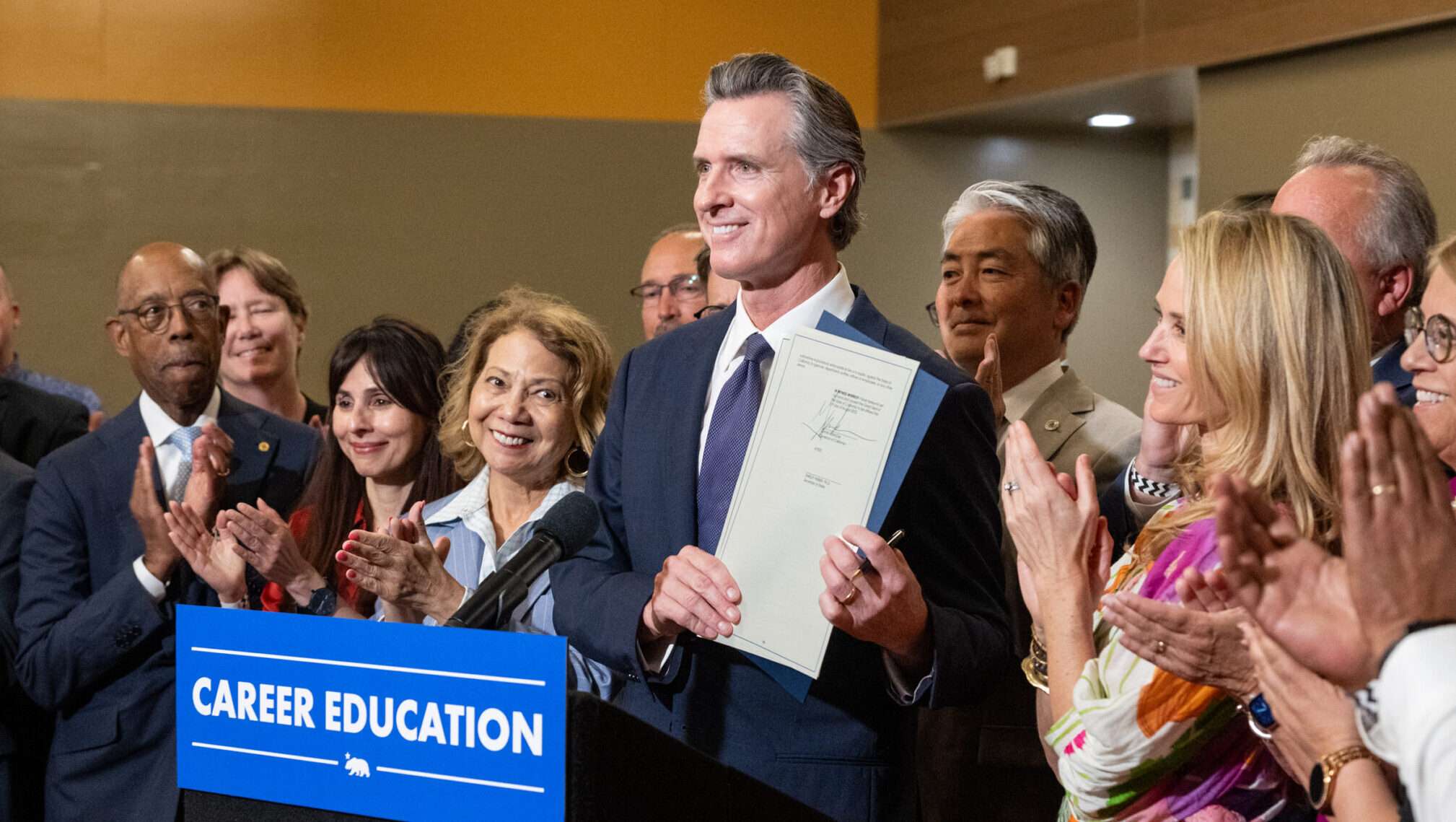Grades and Assessments Can Undermine Finding out. Do They Have To? (Impression)

Amid the heated debates around tests, “grading for fairness,” and take a look at-optional university admissions, it’s easy to throw up one’s palms in exasperation. That is what will make a new ebook by Ethan Hutt and Jack Schneider so timely. In Off the Mark: How Grades, Ratings, and Rankings Undermine Studying (But Do not Have To), they typically make the case towards classic tests and grading—but they are sharp plenty of to have penned a provocative volume that complicates simple-minded dogmas. Hutt is a professor at the College of North Carolina and Schneider at the University of Massachusetts–Amherst, exactly where he qualified prospects the Outside of Take a look at Scores Project. Even though I commonly disagree with their prescriptions, I also price their acuity and are inclined to learn a large amount from them. So, I considered it really worth chatting with them about the quantity. Here’s what they experienced to say.
—Rick
Rick: So, can you explain to me a bit about the reserve?
Jack: We tried to do 3 things in this book. The 1st was the simplest: to make clear the unintended effects involved with what we simply call “assessment technologies.” Most individuals really don’t assume of grades, check scores, and transcripts as technologies, but which is exactly what they are. And they are hugely problematic technologies that close up distorting the finding out method. The second goal was to describe how we received below. In most conditions, the people today who created these systems didn’t have lousy intentions—they had been seeking to solve serious difficulties. Knowledge those people difficulties is vital if we want to make profitable reforms. The 3rd purpose of the e-book was to do the difficult: to suggest a correct for this mess.
Rick: What prompted you guys to generate it?
Ethan: As historians of education, we’re especially intrigued in thinking of the origins of procedures that we now take for granted in schools—practices like A–F grading and standardized tests. We don’t have a central ministry of education and learning directing what happens in educational facilities, and nevertheless assessment appears to be the same practically everywhere. We have been curious: How did this create? How did items get this way? If people are not content with these practices—and they have not been for some time—then why haven’t we been equipped to reform them? These are the troubles we preferred to check out in the ebook, mainly because if educators are heading to tackle the elementary challenges with evaluation, they require to fully grasp how we bought listed here.
Rick: What is incorrect with classic techniques to tests and grading?
Jack: You are going to will need to change above a number of extra columns to us if you want a full remedy to that query. But let us touch on a couple. One main challenge is that our evaluation technologies are maximally reductive a one letter or variety is supposed to inform us what a student knows. Mainly because of this, the symbol—the grade or the test score—ends up staying what pupils focus on. The information they acquire is clear: It doesn’t make a difference what you discover, presented you get good marks. A second difficulty is that grades, exam scores, and transcripts are permanent—it’s as if they’ve been etched in stone. But students develop and modify. As a final result, their assessment records tend to mirror the past far more so than the existing. Numerous a long time in the past, I didn’t know how to experience a bike nowadays, nevertheless, that preceding deficiency of know-how is entirely irrelevant. Consider if I experienced to have all around a long-lasting file of all the things I used to be not able to do.
Rick: Given these worries, I was struck that you guys appear to be to have a reasonably nuanced stance on standardized testing. Can you talk to that?
Ethan: We would absolutely acquire much more friends in reform circles if we adopted a straightforward slogan like “abolish tests.” But that isn’t especially reasonable or productive. Standardized assessments have historically served two distinctive capabilities in our technique. The initial is synchronization. Our procedure is quite decentralized—we do not have widespread specifications, curricula, or textbooks—which usually means that even with getting in the identical grade or even the same system, college students in distinctive spots can have incredibly various encounters. Yet, at critical times, we require the disparate parts of our method to fit collectively that is what standardized testing facilitates. The other significant function standardized exams provide is interaction. Students’ scores get utilized and abused in all varieties of means, but they also can supply vital data about all those pupils. You really do not see distinctive schooling specialists clamoring to get rid of diagnostic tests, for instance.
Rick: I was likely to say, offered your tests skepticism, that I was pondering no matter if some ardent testing critics may well consider your stance right here isn’t as robust as they’d like. Has that arrive up?
Jack: I’m not absolutely sure any individual has been extra outspoken than I have about the excesses of standardized testing. Exam scores are a rotten evaluate of faculty excellent the substantial-stakes use of check scores in condition accountability units is completely misguided and has resulted in a host of unintended consequences and our use of test scores to type learners has exacerbated inequity. But let’s also figure out that a well-built test can offer practical information and facts. Educators use exam effects in successful techniques every working day, and, as Ethan mentioned over, they tie our system alongside one another in means that we simply cannot just dismiss.
Rick: What do you men make of the push by many in higher education to move absent from the SAT and ACT?
Ethan: A single major argument in the e book is that reforms have to be thought of in the context of the dynamics of the complete procedure. A modify in just one section of the method is probable to reverberate. In this circumstance, removing the SAT or ACT is sure to ramp up the opposition for distinction in other pieces of students’ purposes: their grades, Highly developed Placement scores, letters of advice, extracurriculars, and essays. From an fairness standpoint, which is a difficulty. Several of these aspects are even extra strongly associated with socioeconomic status than are SAT and ACT scores.
Rick: I’m also curious of what you feel of the thrust for “equity grading,” no-zero policies, and related proposals?
Jack: I do not imagine they are going to do any damage, and in some cases, they’ll make a constructive distinction. This is an instance of the form of tinkering that educators have the freedom to do in their school rooms, and I assist it. But it is not heading to address the elementary challenges with our evaluation systems. A no-zero coverage, for instance, isn’t heading to change the point that students are continue to centered on the acquisition of a token—the grade.
Rick: Are there any factors created by defenders of standard grading that you discover specifically persuasive or that have earned much more consideration than they generally acquire?
Ethan: Grades and test scores the two provide important capabilities in our process. When defenders of conventional grading say that they believe grades really should actually converse how a pupil is accomplishing in course, we totally concur. Our argument is that this significant interaction perform has been undermined because of all the other responsibilities we’ve burdened grades with. Element of our aim in the book is to figure out how we can generate much more house for teachers to communicate candidly about students’ operate in the moment devoid of pupils fearing for their futures.
Rick: So, Ethan, if just ”abandoning” traditional evaluation and grading isn’t the way to go, what is a better route forward?
Ethan: I assume the to start with step at all stages is to search at current procedures and ask what can be taken out or adjusted while even now preserving the three main capabilities of assessment: motivation, conversation, and synchronization. We know, for instance, that a great deal of the perceived overkill in standardized tests arrives not from federal or point out mandates but from district choices. The amount and frequency of testing could be pared back again to de-emphasize testing and make extra area for studying.
Rick: Provided that, what kind of realistic guidance can you give to academics and college leaders?
Jack: At the classroom level, there are things that educators can do, like anchoring evaluation in initiatives that are meaningful to learners. But we also will need to be performing at the faculty amount, the district amount, the condition amount, and even the nationwide degree. Faculty-admissions methods, for instance, will need to adjust.
Rick: Alright, so what are a couple of steps that you’d encourage district leaders to adopt?
Jack: States never mandate certain methods to grading, so there are certainly steps districts can take on that front. For occasion, we explore earning grades “overwritable.” In essence, learners would have the ability at particular details in the faculty calendar year to show competencies and if they create a competency, new facts should overwrite aged information and facts.
Rick: Ethan, you have a final considered on that rely?
Ethan: Outside of just overwriting outdated details with new, district leaders could also insert new information to a transcript by making it what we phone “double-clickable.” Picture if a school or employer could click on on a quality and see a consultant piece of work from the course. We could change the aim from earning a grade—by whichever means—to a concentrate on what pupils are equipped to do.




